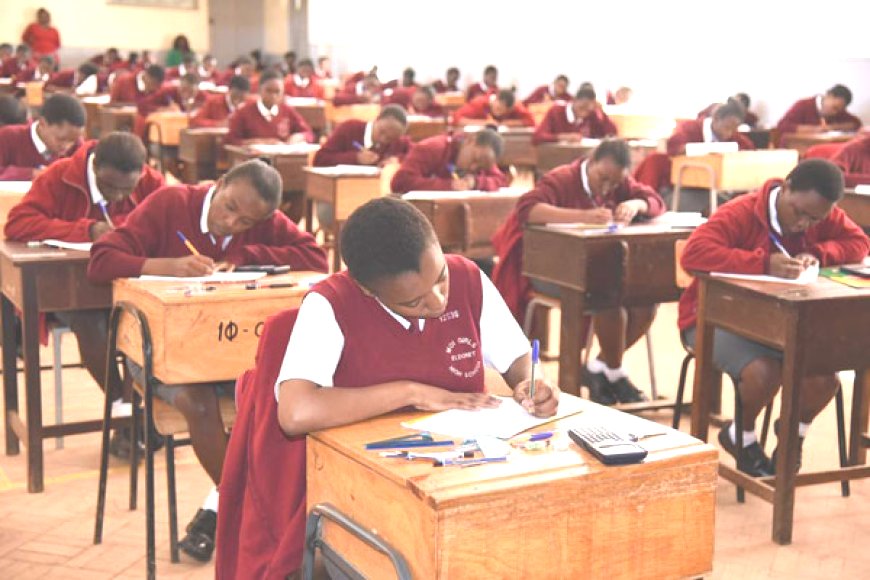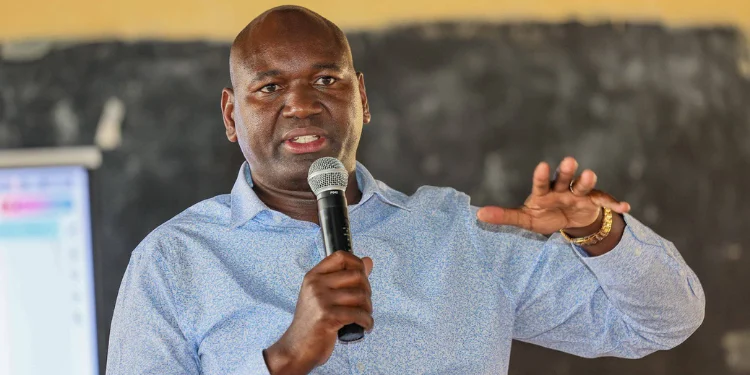At the beginning of every academic year, many secondary schools – particularly national and extra-county ones – launch their Kenya Certificate of Secondary Education (KCSE) targets with pomp, fanfare and dazzling colour. Banners are hoisted high, motivational speakers are invited, students are dressed in themed T-shirts emblazoned with phrases like “Target Mean 10.5: Impossible is Nothing”, and parents gather to witness what appears to be a noble declaration of academic ambition. These colourful events are streamed live on social media for all to see.
On the surface, this spectacle looks admirable. After all, goal-setting is central to success. It motivates learners, unites teachers under a shared vision and projects a sense of direction. Every principal wants to demonstrate progress; every school wants to outperform the rest. Yet beneath the colourful celebrations lies a troubling reality—one that silently erodes the credibility of our education system. This is the commercialisation of performance, which sets the stage for malpractice.
My worry is not with the targets themselves, but with the means used to attain them. In the scramble to meet or surpass these set goals, some schools resort to extreme, unorthodox and unethical practices. The noble idea of motivating learners degenerates into a desperate race where success at any cost becomes the unwritten rule. The end justifies the means.
Parents, too, have been drawn into this unhealthy competition. Some schools demand or “encourage” parents to contribute large sums of money to reward teachers if the targets are met. Incentives range from fully paid overseas trips and hefty cash bonuses to gifts of land, cars, and expensive household items—the line between appreciation and bribery blurs. In essence, examinations—supposed to be a measure of learning—become commercialised ventures, reduced to transactions in money and influence.
When education becomes a business and exams become commodities, integrity inevitably suffers. The pressure to “deliver results” can tempt teachers and administrators to cut corners. Reports of exam malpractices—whether in the form of leaked papers, teacher interference during invigilation, or tampering with marks during internal assessments—often trace their roots to this warped target culture.
As the 2025 KCSE examinations kick off tomorrow, the stakes have never been higher. In many schools, the outcome of these tests will determine not only the future of candidates but also the reputations, careers and financial rewards of entire teaching staffs. Such pressure can easily turn schools into pressure cookers where both teachers and students operate under fear rather than inspiration.
READ ALSO:
Machakos Deputy Governor urges President Ruto to intervene in university lecturers’ strike
The concept of “target setting” was initially introduced to enhance accountability and encourage improvement. However, what we now see in many institutions is a distortion of that ideal. Instead of setting realistic, learner-centred goals based on previous performance, some schools set wildly inflated targets to impress parents, boards and the Teachers Service Commission (TSC). The goal becomes more about optics and less about genuine educational growth.
This has cascading effects. Teachers, feeling the heat to produce “miraculous” results, may turn to unethical tutoring methods, selective teaching or outright assistance during exams. Students, sensing that their worth is tied solely to grades, develop anxiety and resort to dishonest tactics. In the end, the system normalises deceit, creating a generation that believes the end justifies the means.
Moreover, this obsession with grades breeds inequality. Schools in marginalised regions with fewer resources cannot compete on the same playing field. Their teachers lack the means to promise extravagant gifts or organise flamboyant target-launching ceremonies. Yet, these are the same schools often judged by the same KCSE yardstick. The overemphasis on “results” rather than holistic education deepens the gap between the haves and have-nots.
Education, by its nature, should nurture character, curiosity and competence. When exams become high-stakes gambles, the essence of learning is lost. Students no longer study to understand; they study to perform. Teachers no longer teach to inspire; they teach to deliver grades. The school ceases to be a place of enlightenment and becomes a results factory.
The Teachers Service Commission, Ministry of Education, and Kenya National Examinations Council (KNEC) must take a firm stand. It is time to audit the culture of target setting and its implications on ethics in education. Performance contracts and targets can still be valuable tools, but they must be grounded in integrity, realism, and pedagogical soundness—not propaganda and pressure.
Parents, too, must introspect. The culture of offering material rewards to teachers for “good results” should be discouraged. Appreciation is noble, but when it becomes a matter of monetary competition, it distorts the teaching vocation. Teachers are professionals, not gamblers staking their integrity for gifts. Genuine appreciation should manifest as trust, cooperation, and respect for the educational process.
Principals and Boards of Management must also resist the temptation to commercialise performance. Genuine improvement comes from consistent teaching, mentorship, and curriculum support—not flashy ceremonies or promises of riches. Schools should celebrate effort and growth, not just grades.
As we usher in this year’s KCSE, let us remember that the integrity of national examinations is a mirror of our nation’s soul. Each paper written, each mark earned, must reflect honesty, diligence and authenticity. Inflated results achieved through deceit might bring temporary glory, but they produce hollow victories that haunt both the institution and the learners for years.
Targets can inspire excellence, yes—but only when the journey toward them remains honest. The moment we allow greed and pressure to dictate how we teach and assess, we betray the very essence of education. The future of our learners – and indeed, the credibility of our country’s academic certificates – depends on how firmly we draw the line between ambition and corruption.
As the examination season begins tomorrow, let every school, teacher and parent remember: success without integrity is failure in disguise.
By Ashford Kimani
Ashford teaches English and Literature in Gatundu North and serves as Dean of Studies.
You can also follow our social media pages on Twitter: Education News KE and Facebook: Education News Newspaper for timely updates.
>>> Click here to stay up-to-date with trending regional stories
>>> Click here to read more informed opinions on the country’s education landscape
>>> Click here to stay ahead with the latest national news.






